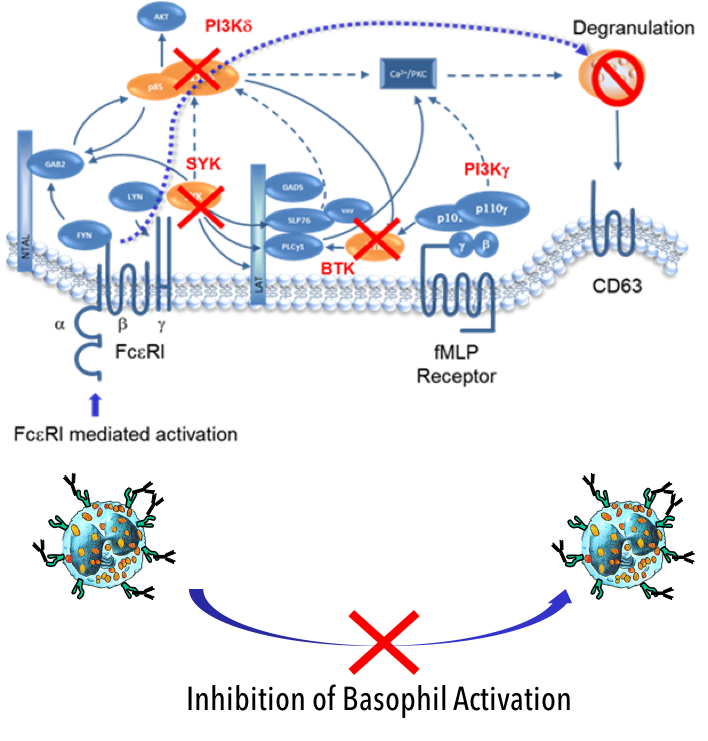Inhibition of Basophil Activation is a Surrogate Biomarker for the Activity of Kinase Inhibitors
- Products & Solutions
- FDA IVD
- About Us
- News & Events
- Contact
Inhibition of Basophil Activation is a Surrogate Biomarker for the Activity of Kinase Inhibitors
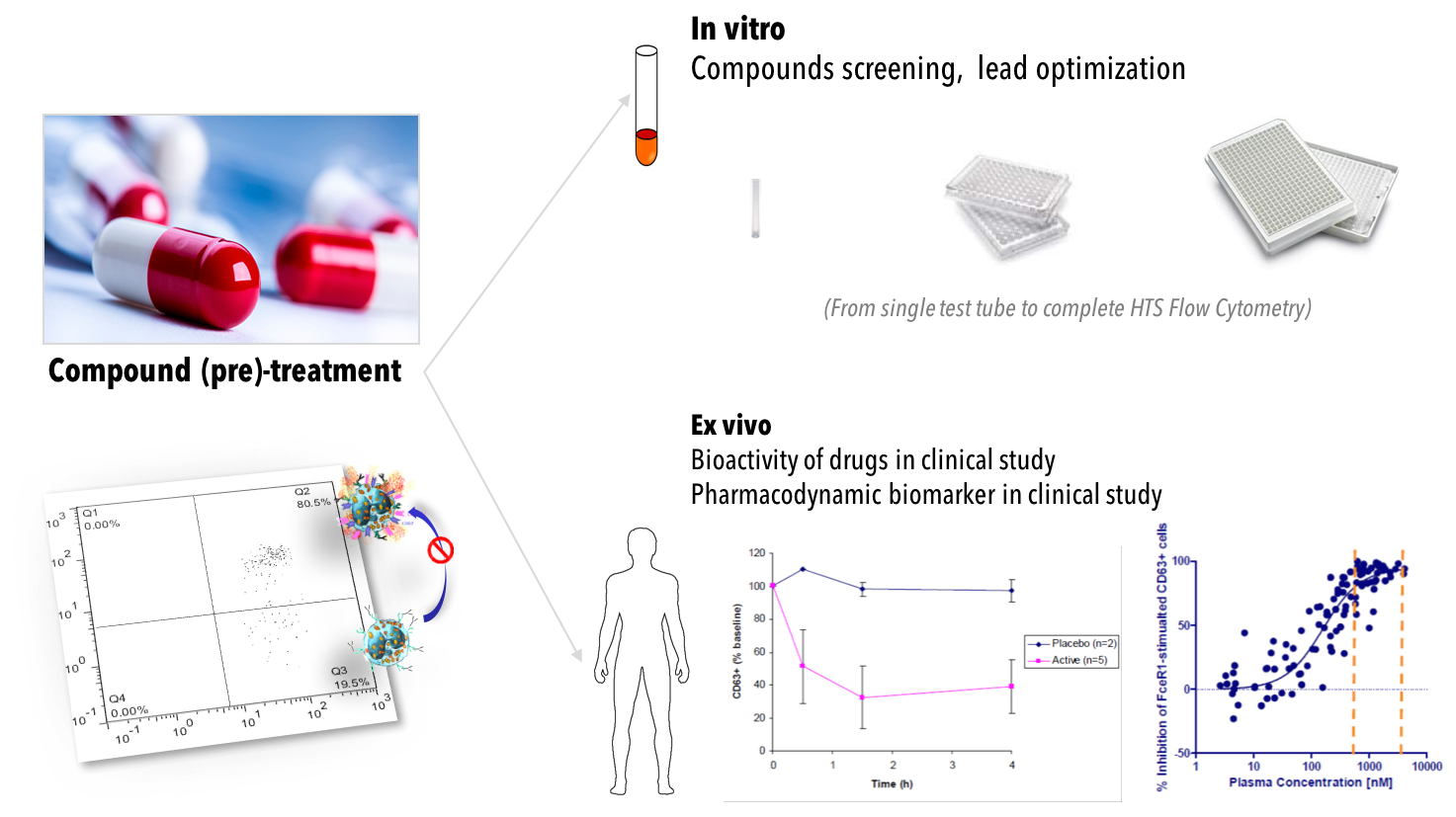
Targeting Immune Cell Signaling Pathway in Oncology
Phosphatidylinositol 3-kinase (PI3K) and Bruton’s tyrosine kinase (BTK) play an integral role in a number of cellular functions which ultimately lead to survival and growth of normal cells. Aberrant activation of this pathway promotes carcinogenesis and tumor angiogenesis. Research has shown that ~1/3 of human cancers develop as a result of aberrant PI3K signaling. Inhibitors of the PI3K/BTK pathway are a large focus for several different pharmaceutical companies with >10 small-molecule PI3K inhibitors currently at different stages of development.
Read more- Functional readout for drugs targeting immune cell signaling pathways: PI3Kδ, BTK, SYK
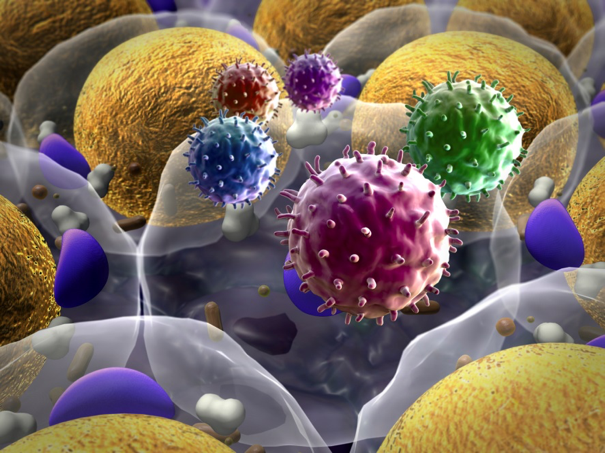
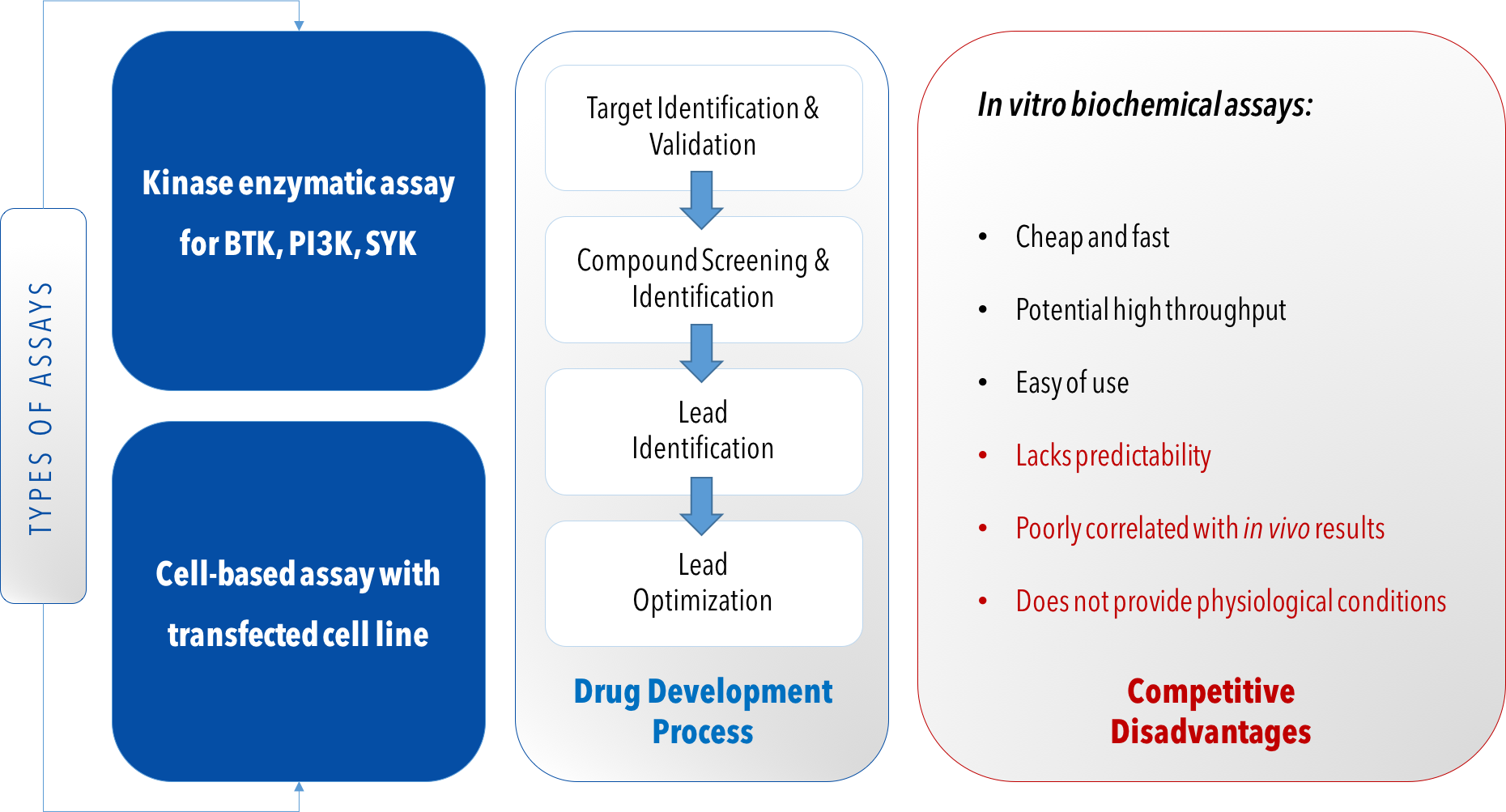
Cell Based Sensor for Kinase Inhibitors
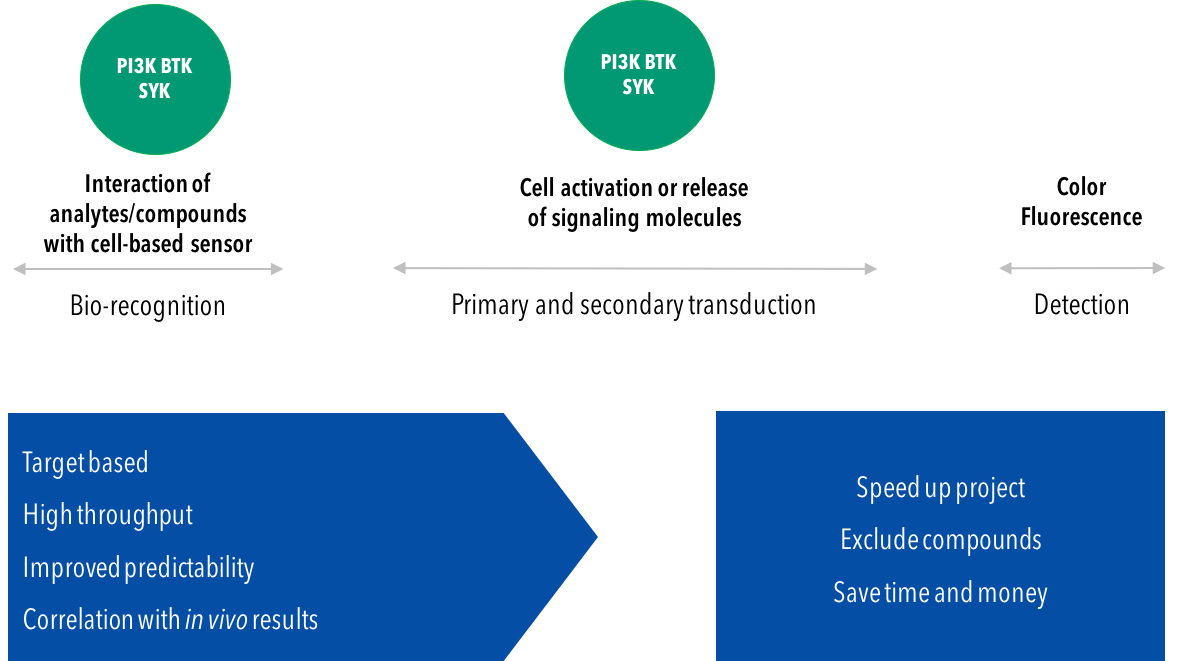
PI3K, BTK and SYK signaling pathways involved in basophil activation have been implicated in allergic responses, autoimmune disorders, and oncology.
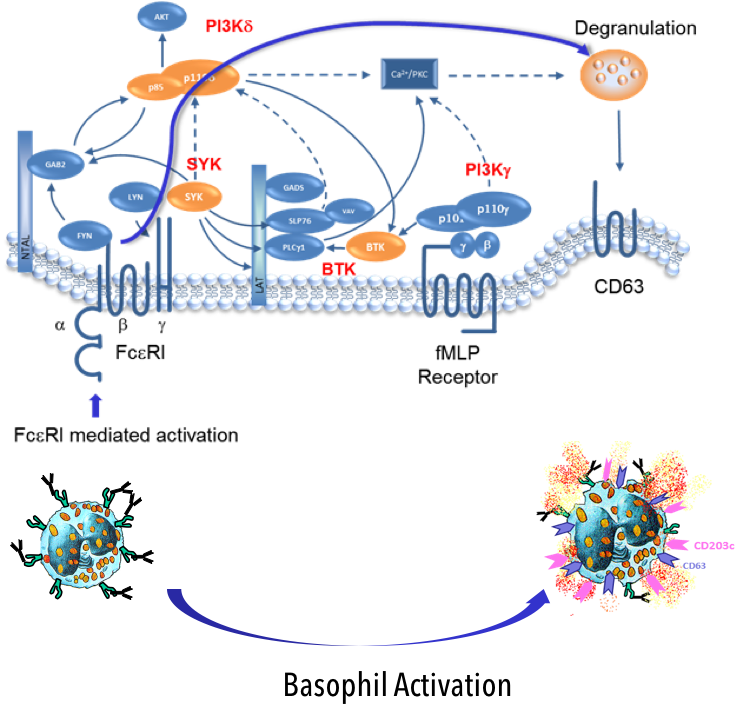
Basophil degranulation and activation can be easily measured in flow cytometry by quantifying the expression of cell surface activation markers such as CD63. Allergic responses, autoimmune disorders and oncology are all comprised of signaling pathways that are also involved in modifying the activation status of basophils. Several key kinases that are molecular targets in drug discovery, such as PI3Kγ and PI3Kδ, SYK, BTK are main components in the basophil activation signaling pathways.
Basophils, the circulating immune cells of allergy, are perfect surrogate markers in human whole blood to check for the bioactivity of inhibitors of immune cells kinases. Monitoring basophil activation in whole blood via flow cytometry is an accurate method for measuring pharmacodynamic responses to small molecule inhibitors against components of these signaling cascades. Alterations in the expression of cell surface basophil activation markers such as CD63 can be measured by flow cytometry. These surrogate markers allow for a high throughput assessment of compound efficacy resulting in a faster failure of ineffective compounds.
